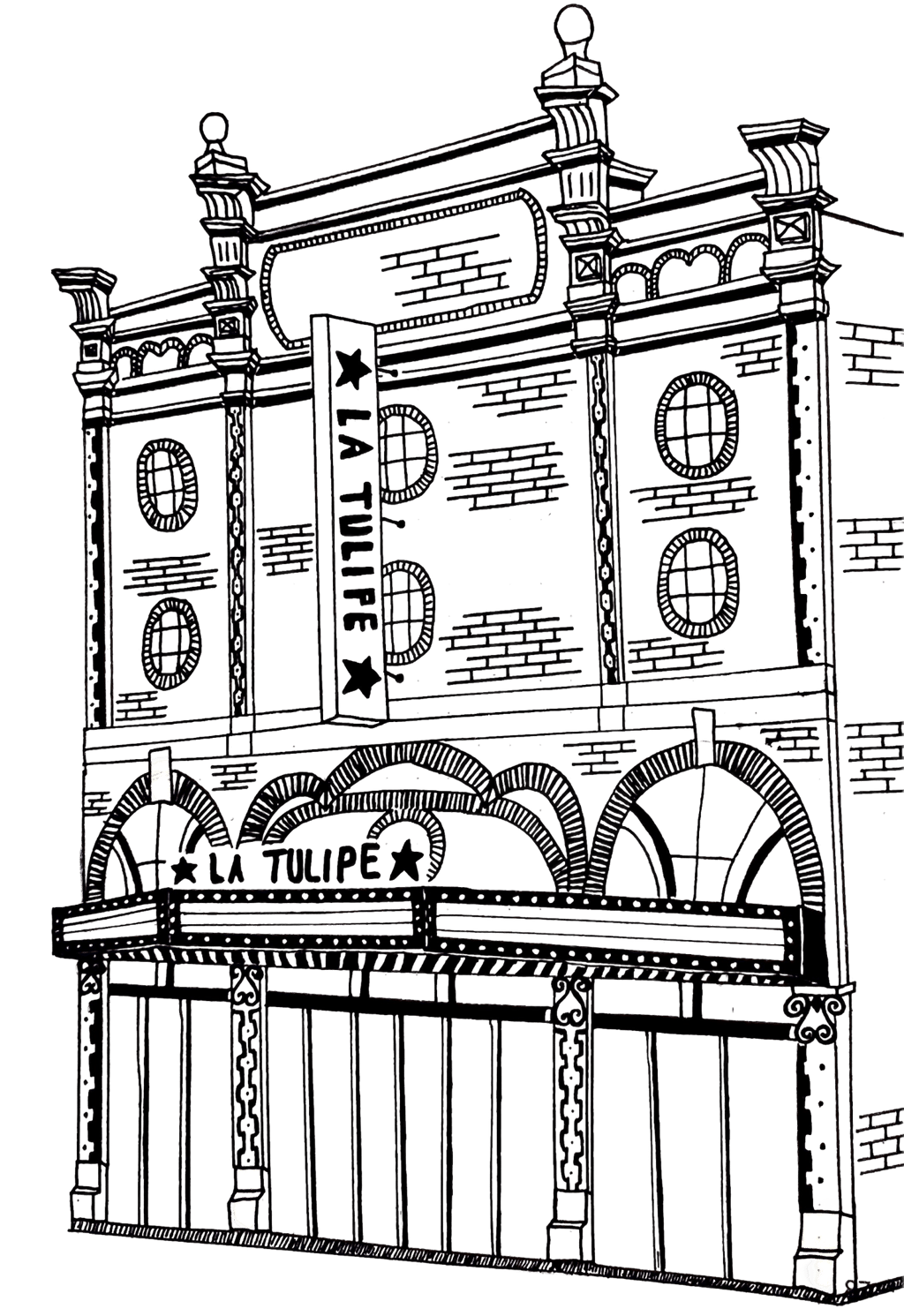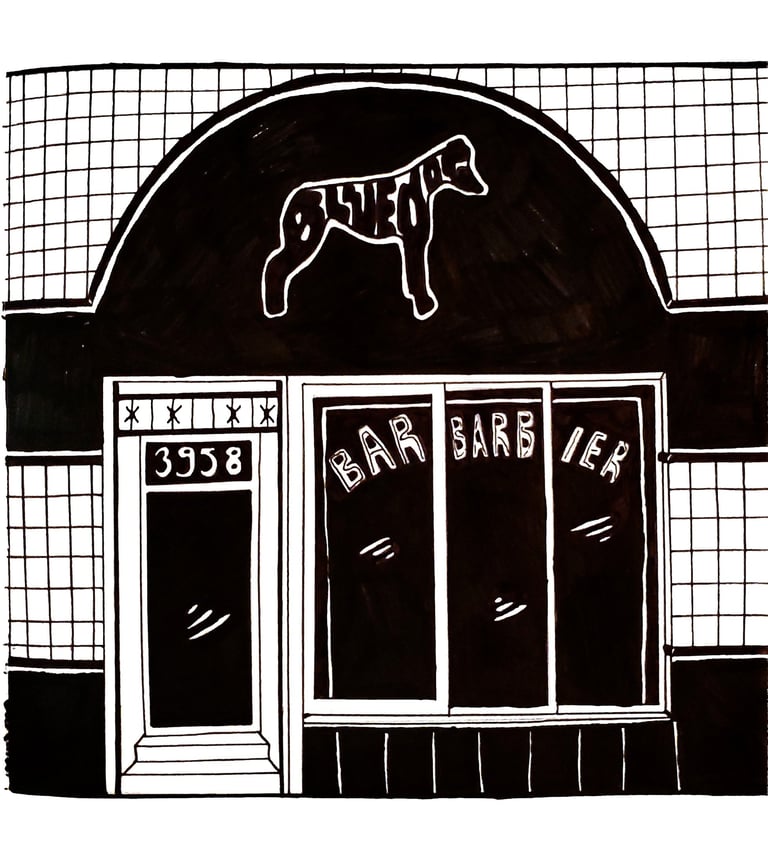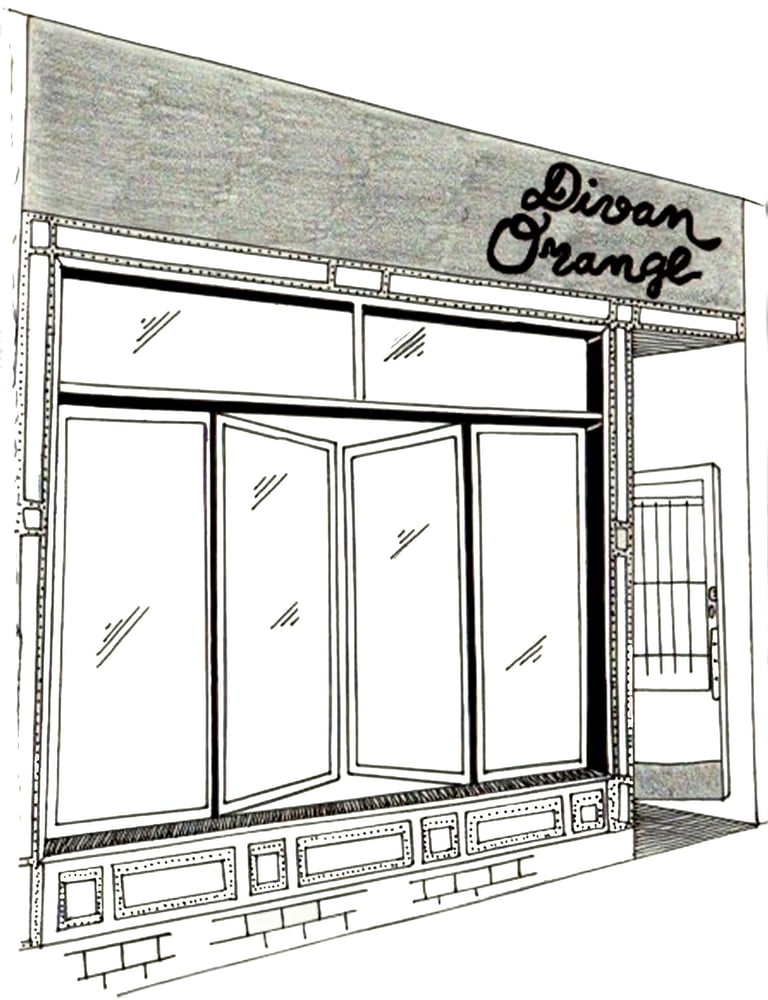

Venues in Limbo: Montréal's Noise Problem
ARTICLE
Sam McGriskin
11/8/20257 min read
The same noise that has been emanating from music venues for decades has, more recently, become a major issue in Montréal. Venues and bars that host live music are facing stiff fines following noise complaints that most often arise from neighbouring buildings. One of the main reasons for this is the rezoning of commercial areas surrounding venues to residential, and another is the city’s inclination to side with developers and complainants.
Bluedog, a Plateau staple for eighteen years, is the most recent in a line of closures that includes La Tulipe, The Diving Bell Social Club and Divan Orange, among others. The closures have almost all followed noise complaints that arose after zoning changes.
This is the case with La Tulipe, a venue that has been around since 1913, that was forced to close for more than a year after the city mistakenly permitted the owner next door to convert his building from commercial to residential. After the same owner complained about the noise coming from La Tulipe, a long legal battle ensued. The Quebec Court of Appeal stated that the venue could no longer make noise that could be heard in the neighbouring building.
Last Friday, the injunction was overturned, meaning that La Tulipe may soon be free to make noise again, though its owners have commented that the issue is not resolved.
In response to local outcry around the time of La Tulip’s closure, the city of Montréal brought forward a new framework for a nightlife policy that includes a $5.5 million budget over three years. Guided by a 32-person Roundtable on Nightlife to advise and create solutions. The policy aims to “revitalize” the city’s nightlife.
The two main objectives listed on the city’s website are:
1. To offer Montrealers the opportunity to enjoy more nightlife, while preserving their quality of life and peacefulness of residential areas.
2. Give nightlife stakeholders the chance to improve their activities and events when the right conditions are in place.
Though the framework was brought forward over a year ago now, it has yet to implement any significant change, and the “right conditions” are still fairly arbitrary. With the recent municipal election and a new mayor, the fate of this policy is unknown.


Soraya Martinez Ferrada’s party, Ensemble Montréal, has touched on the issue and suggested that noise complaints related to venues should pass through a dedicated administrative unit, and a mediation process should take place before any decision about fines or penalties is reached.
The case with Bluedog was similar to La Tulipe, though the residential zoning was not a mistake. The neighbour–an owner who filed complaints against Bluedog–is the same neighbour who has called in complaints against other venues in the same building, including The Diving Bell Social Club and Champs.
Champs has managed to stay afloat, though it has had to pay more than $30,000 in legal fees and was hit with a ban on “the practice of dance,” enforced by Quebec’s liquor board, the Régie des alcools, des courses et des jeux (RACJ). The real-life ban on dancing (and karaoke) lasted nine months and was lifted in October. The RACJ did not respond to a request for comment.
Shortly after the initial closure of La Tulipe, Claude Leverée (co-founder of La Tribu, the company that owns La Tulipe) commented on the situation in an interview with CHMP-FM, saying, “The Tulip is more than 100 years old. It must be understood that before the beginning of this saga, we had been operating peacefully for 15 years, without any complaints of noise. And overnight, we find ourselves in a situation that is surreal…”
Bar Le Ritz owner Meyer Billurcu also mentioned a sudden influx in noise complaints. In an email to RMP, he said that the neighbourhood was a commercial zone when the bar opened and once the borough rezoned it as residential, condos were developed all over the surrounding area. “That’s when the noise complaints started,” said Billurcu, “The eight years prior to the rezoning, we received zero noise complaints.”
When suggesting possible solutions, Billurcu said, “It would be great if venues could get some sort of protection like heritage status. That way, people who just move into the neighborhood couldn’t lodge complaints against venues that have been in there for years. These venues contribute a lot to the city’s nightlife and culture. It’s not fair that someone can move in and cause the venue(s) to close.”
When speaking of La Tulipe, Billurcu said, “Even if they could reopen tomorrow, the lost revenue would be damaging to any business.”
Turbo Haüs owner Sergio Da Silva has been one of the leading voices on this issue. He became affiliated with Bluedog shortly before it closed down. Over the phone, Da Silva said that it was already difficult to make money in a space like that, and when it was hit with noise complaints and threats–which didn’t directly shut it down–it added an intimidation factor for people looking to book shows. He said, “It becomes difficult to book shows there because they know that at any minute, the neighbour can call in a noise complaint and have the show shut down. We had one [show] that was almost shut down as early as 7:30 PM, during sound check.”
When addressing the complaints, Da Silva said, “It was always the same person … if one person is making these complaints, at some point you have to find them as somebody who is abusing the bylaws … her space was never meant to be residential, it was supposed to be a commercial space and she switched it and again that’s causing all sorts of issues.”
He added that the city has been of no help. “None of them know anything that they’ve been talking about. They’ve been talking about a nightlife platform and a nightlife reform for well over ten years and haven’t done shit. They’ve done nothing but make it worse. Ultimately, there’s nobody from the city who is currently in any sort of position to change the rules and make things better who can fix what’s going on. Because there’s no political will. The city makes all of its money off of property taxes and to go after these people and make it more difficult for them to do anything is not going to make anybody popular voter-wise.”
When addressing the reasoning for the new zoning changes, Da Silva said, “There has been this push to keep people in the city of Montréal because there has been an exodus over the past few years. As we try to do that, we put more and more rules in place to make it feel like more of a suburban living arrangement, where it is not. So you’re trying to force something into a place that it’s never going to fit and then you run into all these, sort of, issues such as, you know, noise complaints.”
Da Silva also emphasized the Moralité arm of the police and its heavy involvement in the issue. “There’s a very specific situation [in Montreal] and arm of the police called the morality police, and they are operating above the rules of the municipality. And they are basically running on the rules of the province and the RACJ.
So no matter what laws we pass in the city of Montréal, if the morality police who work for the province decide that you’re still a nuisance–which is the word that they use, they describe nightlife and culture as a nuisance–they can remove your liquor permit and the city can’t do anything to stop them. Even though you’re responding to and respecting all the rules of the municipality, at the provincial level, they can still come after you.”
When it comes to Turbo Haüs, Da Silva said that he is not currently worried. He has rented the apartments above–often used as a place to stay for bands passing through–and has given his phone number out to his neighbours so that they can contact him directly if there are any issues.
So far, proposed solutions, such as decibel meters, soundproofing and extended operating hours permits, haven’t changed the fate of music venues in Montréal.
Further solutions that have been brought to the table include a form of protection–similar to heritage status, mentioned by Billurcu–or something like the “agent of change principle” practiced in Toronto.
The “agent of change principle” lays more responsibility on developers to adapt to the existing surroundings and conditions by applying measures like soundproofing to their own buildings and also notifying new residents of noise that may come from venues close by. In Toronto’s case, this includes any residential units within 120 meters of a live music venue.
What the main political parties appeared to agree on leading up to the election was that the first responder to a noise complaint of this type should not be a police officer.
Projet Montréal suggested a nightlife policy and extended operating hours, which have both already been implemented.
Transition Montréal suggested implementing “international best practices,” including: Establishing a Night Mayor (an idea that has been carried out in Ottawa), protecting cultural areas from gentrification, increasing funding for venue soundproofing, limiting involvement of the SPVM and rebalancing city subsidies for culture.
Nightlife is one of several notable issues that were highlighted, including housing, homelessness and public transit. If the powers that be opt to sideline the promises they made regarding nightlife, they’ll likely be met with significant backlash as locals are becoming increasingly vocal in their support for venues.
Earlier this year, when the city proposed noise bylaws that would raise the first-offense fine from $1,500 to $10,000 and up to $20,000 for repeat offenses, it received over 13,000 online comments from the public, opposing the dramatic increase. The city then pulled the proposed bylaws for review.
Da Silva pointed out over the phone that “culture doesn’t need saving, it’s always going to exist.”
It’s the venues that promote culture, the neighbourhoods they enliven and the people involved: owners, bartenders, security guards, busboys, cab drivers, locals, etc., who are currently in need of a helping hand, and it’s no guarantee that that hand will be extended without a good deal of public encouragement.
Illustrations by Audrey Georges


Running Man Newsletter
Get RMP updates, select articles, essays and goings-on


RUNNING MAN PRESS
CoNTACT
info@runningmanpress.ca
© 2024. All rights reserved.
ads@runningmanpress.ca
